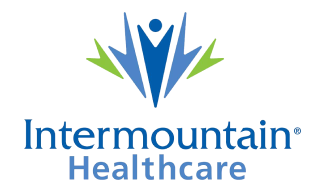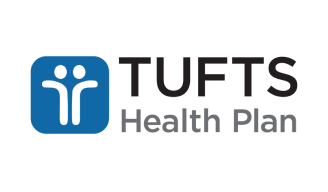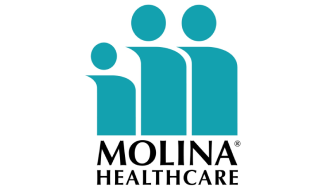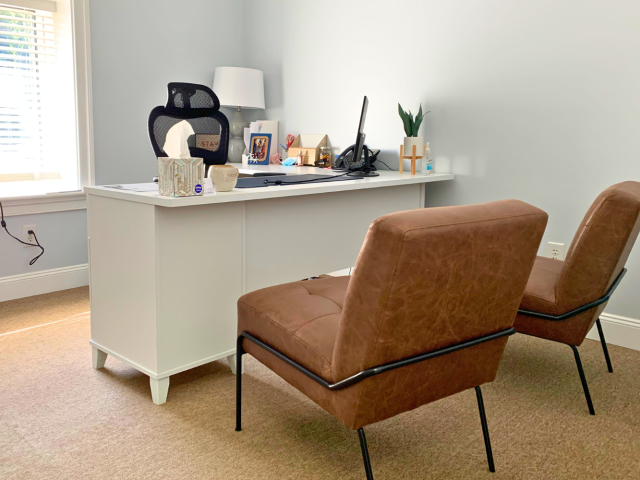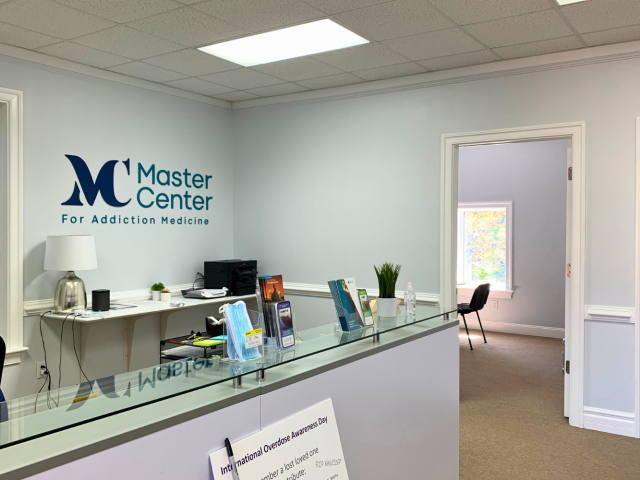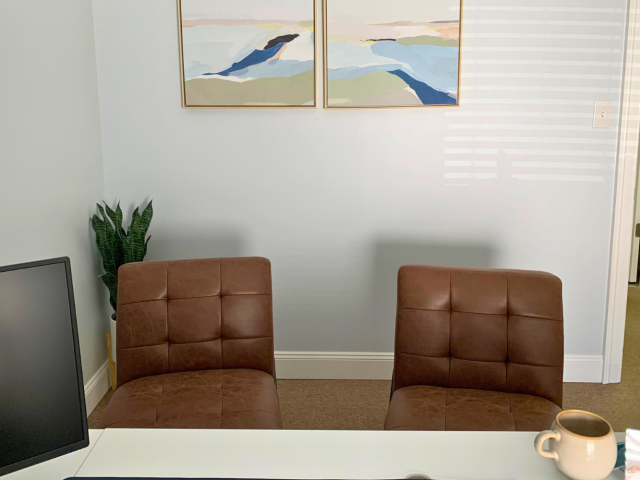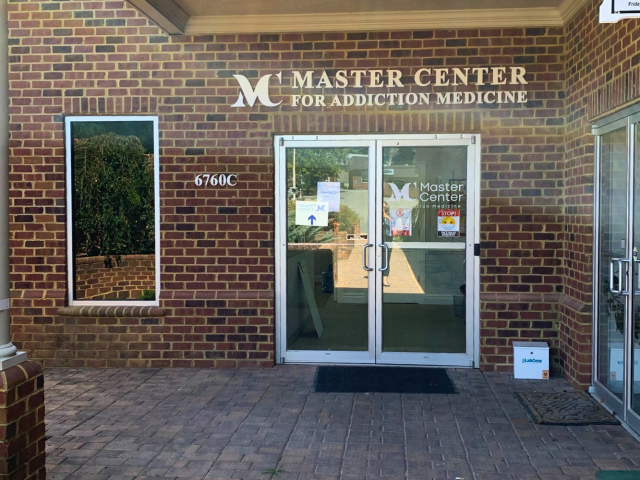Gloucester, Virginia, United States
Master Center Gloucester
Verified
Verified
This provider’s information has been quality-checked by Recovery.com’s Research Team for accuracy and completeness, including center verification through appropriate third-party organizations.
Joint Commission Accredited
The Joint Commission accreditation is a voluntary, objective process that evaluates and accredits healthcare organizations (like treatment centers) based on performance standards designed to improve quality and safety for patients. To be accredited means the treatment center has been found to meet the Commission's standards for quality and safety in patient care.
Provider's Policy
Master Center accepts Medicare, Medicaid, Tricare and most commercial insurance. Even with insurance, we know cost can be a concern. Our team works with you to help find payment options that will work for you.
About Master Center Gloucester
At Master Center for Addiction Medicine - Gloucester, each client receives medical care led by an addiction specialist, counseling from experienced therapists, and guidance from a peer recovery coach. They offer ambulatory detox, medication-assisted treatment (MAT), and an intensive outpatient program. With a hybrid model combining telehealth and in-person care, Master Center has helped over 10,000 clients access high-quality treatment on their path to recovery. They accept most major insurance plans, including Medicaid, Medicare, and Tricare, and offer self-pay options with potential discounts and payment plans.
Blend Virtual & In-Person Support
Master Center’s hybrid model combines the flexibility of virtual care with in-person visits, typically starting with a thorough on-site intake to help their team create a custom treatment plan for each client. Most programming is delivered virtually, but clients can see providers face-to-face more often if they prefer. No matter the format, Master Center offers consistent, compassionate care that feels like a warm hug—not a cold system.
Bring Therapy Lessons Into Real Life
In addition to supporting physical well-being through detox and MAT, clients in the intensive outpatient program (IOP) attend to emotional health through one-on-one and group therapy sessions to better understand the problems they are trying to overcome. The IOP blends education, therapy, and real-world application, helping clients build recovery skills they can begin using immediately in everyday life. Clients attend 3-hour group therapy sessions 4 times a week.
Be Well Prepared to Prevent Relapse
Master Center’s Sustained Recovery Program treats relapse as a process, not a single event. Clients learn to recognize early warning signs and practice prevention strategies for each stage. Through ongoing assessments, recovery coaching, social support services, and peer-based models, the program helps clients adjust their goals, strengthen relapse prevention skills, and stay engaged in long-term recovery with a focus on awareness, accountability, and support.
Read More
Insurance Accepted
Provider's Policy:Master Center accepts Medicare, Medicaid, Tricare and most commercial insurance. Even with insurance, we know cost can be a concern. Our team works with you to help find payment options that will work for you.
Stabilize with Detox, Sustain with MAT
Master Center offers both detox and medication-assisted treatment (MAT) to support clients through withdrawal and into recovery. Their 4-week ambulatory detox program helps clients safely manage withdrawal without putting life on hold. Their MAT program helps clients maintain recovery by combining FDA-approved medications like Suboxone or Vivitrol alongside behavioral therapy.
Find Support for Family & Friends
Master Center supports not just clients, but also those who care about them. Family and friends can join a four-part Zoom class series or a six-week group therapy program, both led by trained counselors. These spaces offer education, emotional support, and tools to understand addiction, navigate its impact, and support a loved one’s recovery.
Stay Motivated by a Recovery Coach
At the very first meeting, Master Center pairs each client with a dedicated peer recovery coach—a trained specialist with lived experience who offers guidance, encouragement, and care navigation between appointments. They help the client stay engaged, access resources, build a future, and reduce relapse risk as part of the client’s ongoing support system throughout recovery.
Find Belonging in Specialized Group Therapy
Master Center offers about 40 virtual groups weekly, helping each client find the right fit in spaces designed for their profession, identity, or therapeutic approach. Health professionals and veterans find support for challenges unique to their roles; men’s and women’s groups address gender-specific struggles; dialectical behavior therapy and music groups provide tools for processing emotions.

Center Overview
Men and Women
Men and women attend treatment for addiction in a co-ed setting, going to therapy groups together to share experiences, struggles, and successes.

Treatment Focus
This center treats primary substance use disorders and co-occurring mental health conditions. Your treatment plan addresses each condition at once with personalized, compassionate care for comprehensive healing.

Care Options







Treatment
Specializations
Alcohol
Using alcohol as a coping mechanism, or drinking excessively throughout the week, signals an alcohol use disorder.
Detox
Detox fully and safely removes toxic substances from the body, allowing the next steps in treatment to begin with a clean slate.
Benzodiazepines
Benzodiazepines are prescribed to treat anxiety and sleep issues. They are highly habit forming, and their abuse can cause mood changes and poor judgement.
Drug Addiction
Drug addiction is the excessive and repetitive use of substances, despite harmful consequences to a person's life, health, and relationships.
Heroin
Heroin is a highly addictive and illegal opioid. It can cause insomnia, collapsed veins, heart issues, and additional mental health issues.
Medication-Assisted Treatment
Combined with behavioral therapy, prescribed medications can enhance treatment by relieving withdrawal symptoms and focus patients on their recovery.
Opioids
Opioids produce pain-relief and euphoria, which can lead to addiction. This class of drugs includes prescribed medication and the illegal drug heroin.
Professionals
Busy, high-ranking professionals get the personalized treatment they need with greater accommodations for work, privacy, and outside communication.
Approaches
Evidence-Based
A combination of scientifically rooted therapies and treatments make up evidence-based care, defined by their measured and proven results.
Individual Treatment
Individual care meets the needs of each patient, using personalized treatment to provide them the most relevant care and greatest chance of success.
Medical
Medical addiction treatment uses approved medications to manage withdrawals and cravings, and to treat contributing mental health conditions.
Personalized Treatment
The specific needs, histories, and conditions of individual patients receive personalized, highly relevant care throughout their recovery journey.
Therapies
1-on-1 Counseling
Patient and therapist meet 1-on-1 to work through difficult emotions and behavioral challenges in a personal, private setting.
Eye Movement Therapy (EMDR)
Lateral, guided eye movements help reduce the emotional reactions of retelling and reprocessing trauma, allowing intense feelings to dissipate.
Medication-Assisted Treatment
Combined with behavioral therapy, prescribed medications can enhance treatment by relieving withdrawal symptoms and focus patients on their recovery.
Relapse Prevention Counseling
Relapse prevention counselors teach patients to recognize the signs of relapse and reduce their risk.
Substances We Treat
Alcohol
Using alcohol as a coping mechanism, or drinking excessively throughout the week, signals an alcohol use disorder.
Benzodiazepines
Benzodiazepines are prescribed to treat anxiety and sleep issues. They are highly habit forming, and their abuse can cause mood changes and poor judgement.
Co-Occurring Disorders
A person with multiple mental health diagnoses, such as addiction and depression, has co-occurring disorders also called dual diagnosis.
Cocaine
Cocaine is a stimulant with euphoric effects. Agitation, muscle ticks, psychosis, and heart issues are common symptoms of cocaine abuse.
Drug Addiction
Drug addiction is the excessive and repetitive use of substances, despite harmful consequences to a person's life, health, and relationships.
Ecstasy
Ecstasy is a stimulant that causes intense euphoria and heightened awareness. Abuse of this drug can trigger depression, insomnia, and memory problems.
Heroin
Heroin is a highly addictive and illegal opioid. It can cause insomnia, collapsed veins, heart issues, and additional mental health issues.
Psychedelics
Hallucinogenic drugs—like LSD—cause euphoria and increased sensory experiences. When abused, they can lead to depression and psychosis.
Methamphetamine
Methamphetamine, or meth, increases energy, agitation, and paranoia. Long-term use can result in severe physical and mental health issues.
Aftercare
Experience
Special Considerations
Flexible technology policies
Centers with flexible technology policies allow professionals to stay in touch with work and give patients a greater sense of connection and normalcy.
Gender-specific groups
Patients in gender-specific groups gain the opportunity to discuss challenges unique to their gender in a comfortable, safe setting conducive to healing.
Smoking and Vaping Policy
We love hearing about your treatment experience
Help individuals and families seeking treatment by sharing your first-hand experience with this treatment provider. Review Guidelines.



















